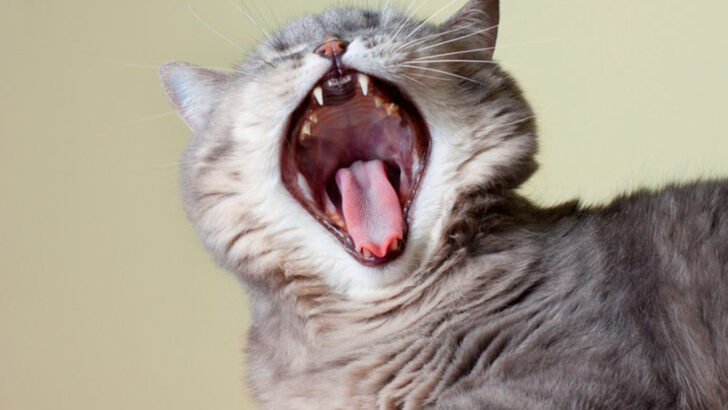Your cat’s teeth might be small, but the trouble they can cause? Enormous.
Bad breath is just the beginning. Plaque, tartar, and gum disease can turn your cat’s mouth into a ticking time bomb of pain and infection. And let’s be real—when was the last time your cat willingly opened wide for a toothbrush?
Skipping dental care isn’t an option, but don’t worry—you don’t need to wrestle your cat into submission to keep their teeth and gums in top shape. With the right tricks, you can protect their pearly whites without losing a finger in the process.
Here are 10 simple ways to keep your cat’s mouth healthy—no vet visit required.
Regular Brushing
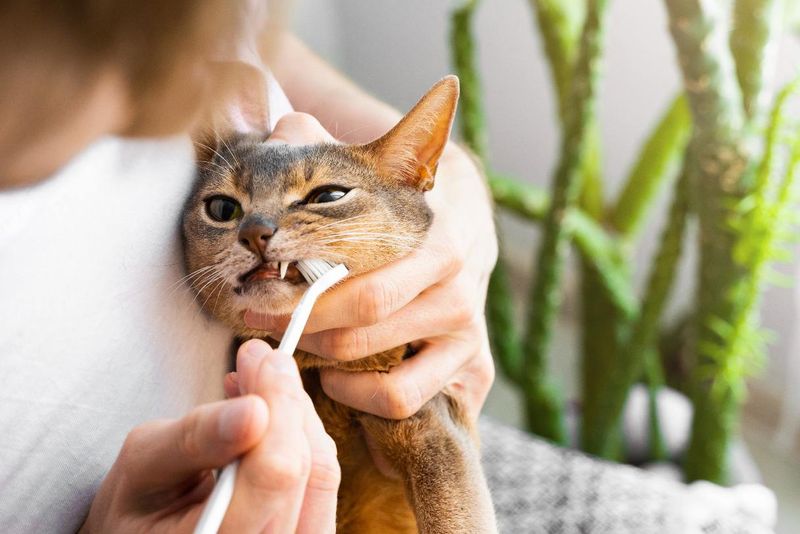
Brushing your cat’s teeth regularly is one of the most effective ways to prevent dental disease. Use a cat-friendly toothbrush and toothpaste to avoid any harmful substances. Start by gently introducing the brush to your cat, allowing them to sniff and get used to the texture.
Gradually, you can begin brushing their teeth in small circles, paying attention to the gum line where plaque tends to accumulate. Doing this at least a few times a week can significantly reduce plaque buildup and ensure healthier gums. Make this a bonding time to reduce stress for both you and your cat.
Dental Treats
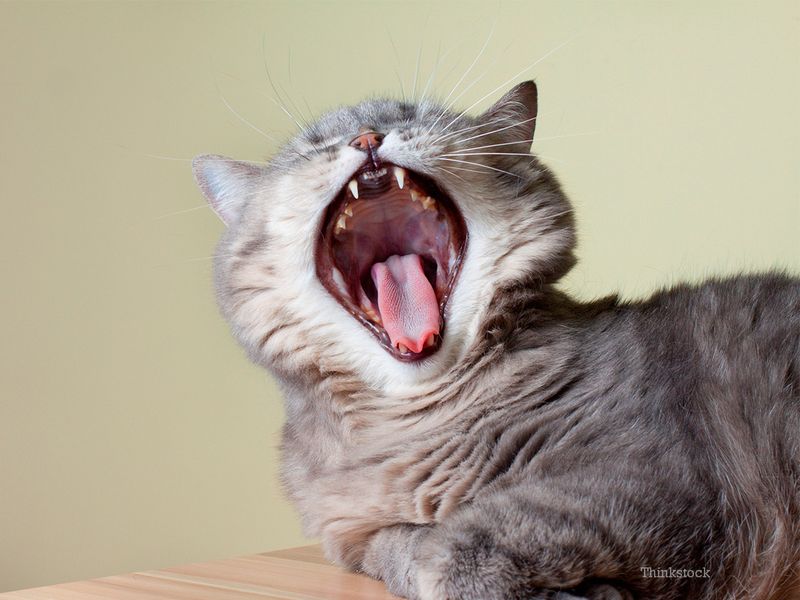
Dental treats are designed to help clean your cat’s teeth and freshen their breath. These treats come in various flavors and are usually loved by cats. They work by mechanically scraping off the plaque as the cat chews, providing a dual benefit of a tasty snack and dental cleaning.
Choose treats that are specifically formulated for dental health, ensuring they are low in calories and high in effectiveness. This is an easy and enjoyable way for your cat to maintain oral hygiene without much effort from your side. Additionally, it can be a rewarding part of their daily routine.
Specialized Diet
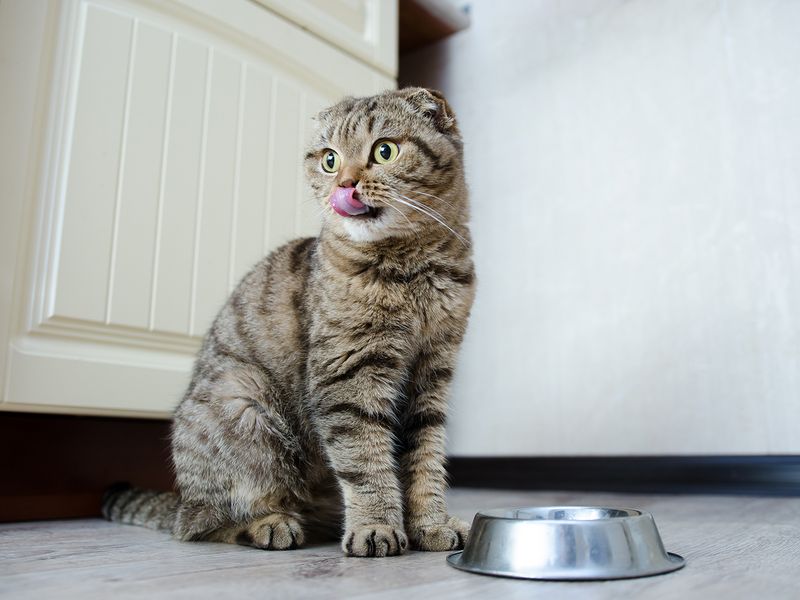
Some cat foods are specially formulated to reduce plaque and tartar buildup. These diets contain larger kibbles that encourage chewing, which can help mechanically clean the teeth. They often include added nutrients that promote gum health.
Consulting with your veterinarian can help you choose the best diet plan tailored to your cat’s needs. While this method alone might not replace brushing, it certainly complements other dental care practices. Ensuring a balanced diet can improve not only dental health but also your cat’s overall well-being, making it a holistic approach.
Chew Toys
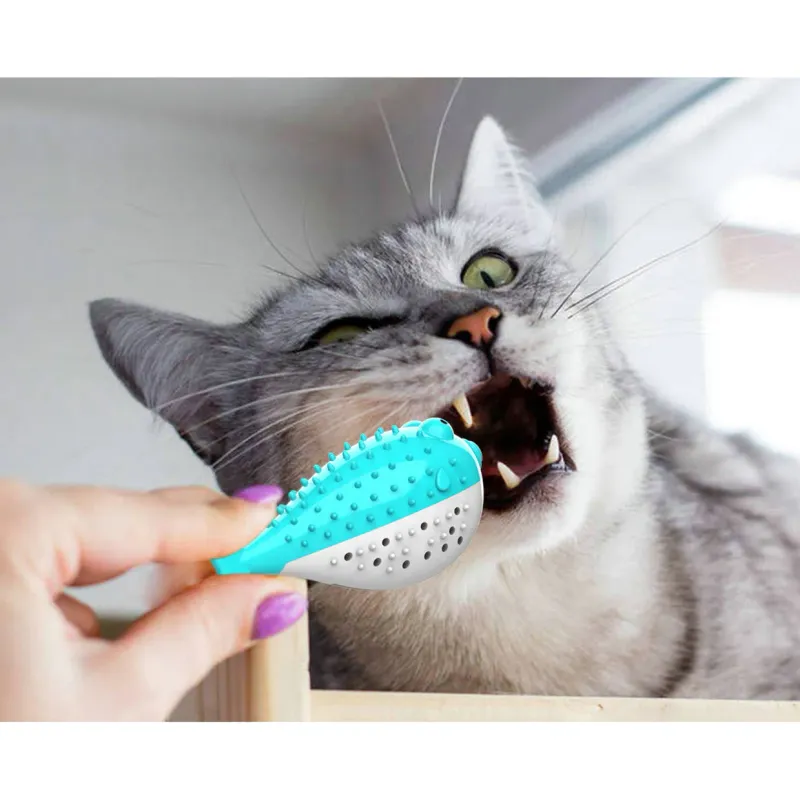
Chew toys, especially those designed for dental health, can be a fun way to assist in keeping your cat’s teeth clean. These toys are often textured or made from materials that promote gum health and massage them during play.
Look for toys made from safe, durable materials that can withstand regular chewing. Incorporating these toys into your cat’s playtime can help reduce boredom and anxiety, while also serving a hygienic purpose. Always supervise play sessions to ensure the toys remain intact and safe for your cat to enjoy.
Plaque Control Additives
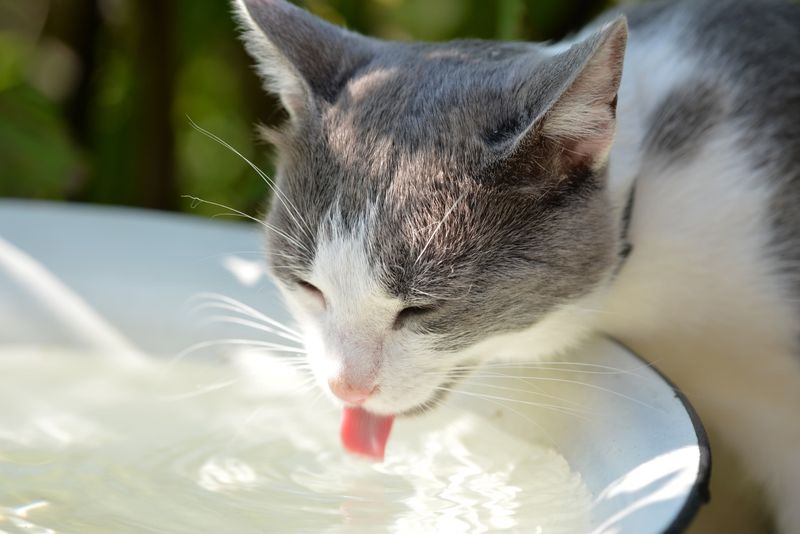
Water additives can be an easy and effective way to combat dental problems. These solutions are formulated to reduce plaque and tartar buildup when added to your cat’s drinking water. They are tasteless and odorless, making them unnoticed by most cats.
Including such additives can complement brushing and other oral care techniques, offering a holistic approach to dental hygiene. Consistent use is key for noticeable results. Ensure the additives are veterinarian-approved to avoid any adverse effects on your cat’s health.
Routine Vet Check-ups
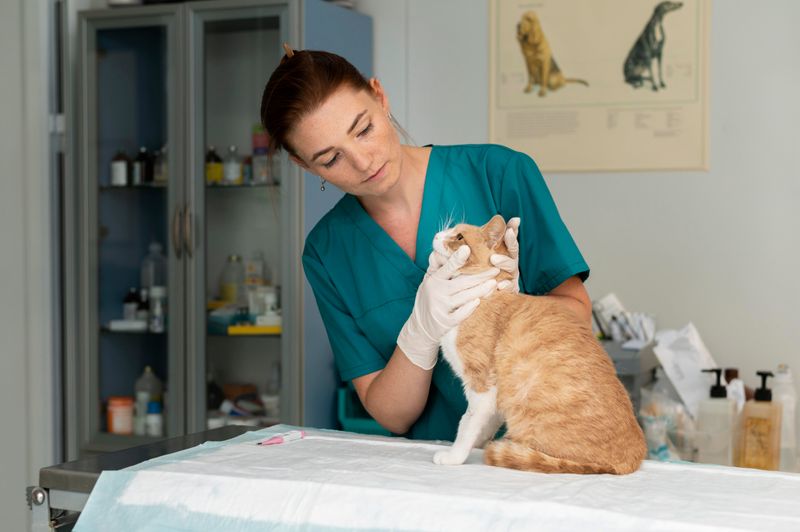
Regular veterinary check-ups are vital for early detection and prevention of dental issues. During these visits, the vet will examine your cat’s teeth and gums, providing professional cleaning if necessary. This helps in spotting problems like gingivitis or periodontal disease before they become severe.
Schedule dental check-ups at least once a year or more often if your cat is prone to dental issues. Your vet can also offer personalized advice on maintaining your cat’s oral health. These visits ensure your cat remains healthy, and any emerging issues are promptly addressed.
Cat Tooth Gels
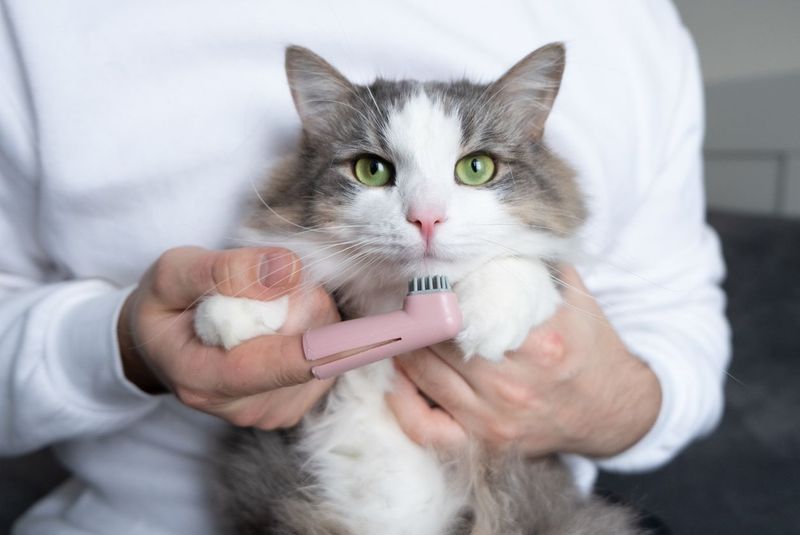
Tooth gels are an effective solution for maintaining oral hygiene without the need for brushing. These gels contain enzymes that help break down plaque and bacteria, promoting healthier teeth and gums.
Simply apply the gel to your cat’s teeth as directed, often using your finger or a soft applicator. It’s a stress-free option for cats who resist brushing, allowing you to maintain their dental health with minimal fuss. Consistent use can lead to noticeable improvements in oral hygiene, combining convenience with care.
Dental Sprays
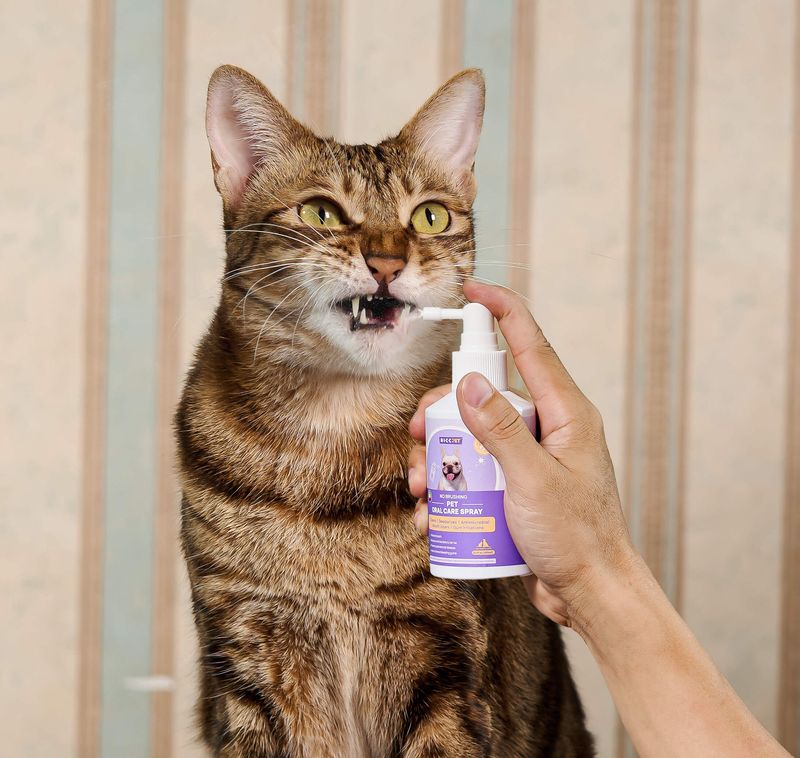
Dental sprays offer a convenient way to freshen your cat’s breath and aid in reducing plaque. These sprays usually contain natural ingredients that help maintain oral hygiene without the need for brushing.
Simply spray the product into your cat’s mouth as per the instructions. It’s a quick solution for busy pet owners, providing dental care in seconds. Ensure that the spray is specifically designed for cats to avoid harmful substances. Using dental sprays can be a simple addition to your cat’s oral care routine, promoting a healthier mouth.
Raw Bone Chewing
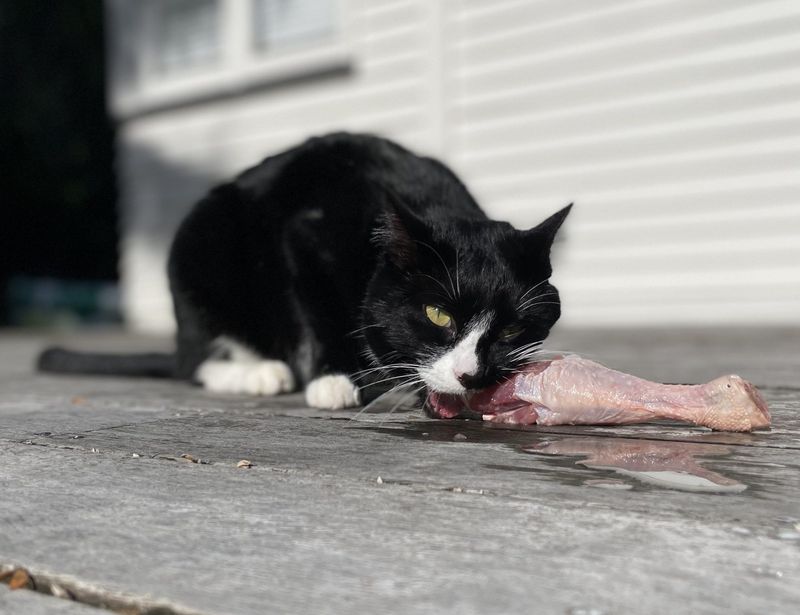
Raw bones can be a natural toothbrush for cats, helping to remove plaque as they chew. Ensure the bones are appropriately sized and never cooked, as cooked bones can splinter and cause harm. Raw bones offer a natural source of nutrition while promoting dental health.
Always supervise your cat when they are chewing on bones to prevent choking hazards. This method is not suitable for all cats, so consult with your veterinarian before introducing raw bones into their diet. It’s a natural way to enhance dental hygiene while offering a tasty treat.
Maintaining Hydration
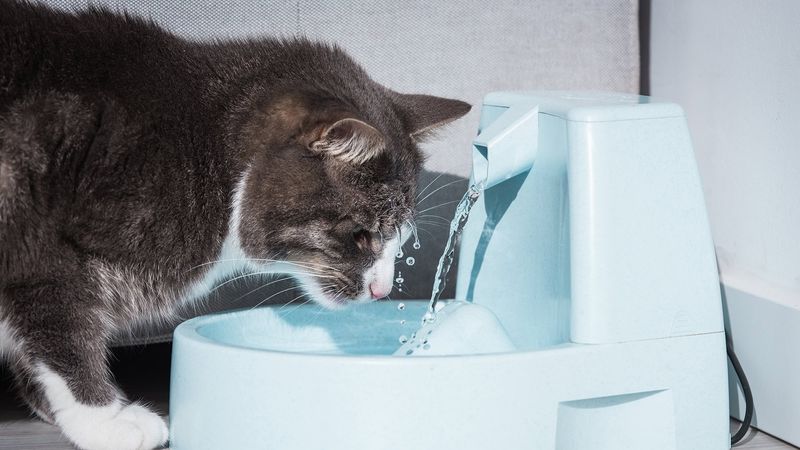
Proper hydration is essential for your cat’s overall health, including dental well-being. Water helps to wash away food particles and bacteria that can lead to plaque buildup. Provide your cat with access to fresh, clean water at all times.
Consider using a water fountain, as many cats are attracted to running water and may increase their water intake. Keeping hydrated supports their entire body and can indirectly improve oral health. This simple step is crucial in maintaining a healthy lifestyle for your beloved feline friend.

